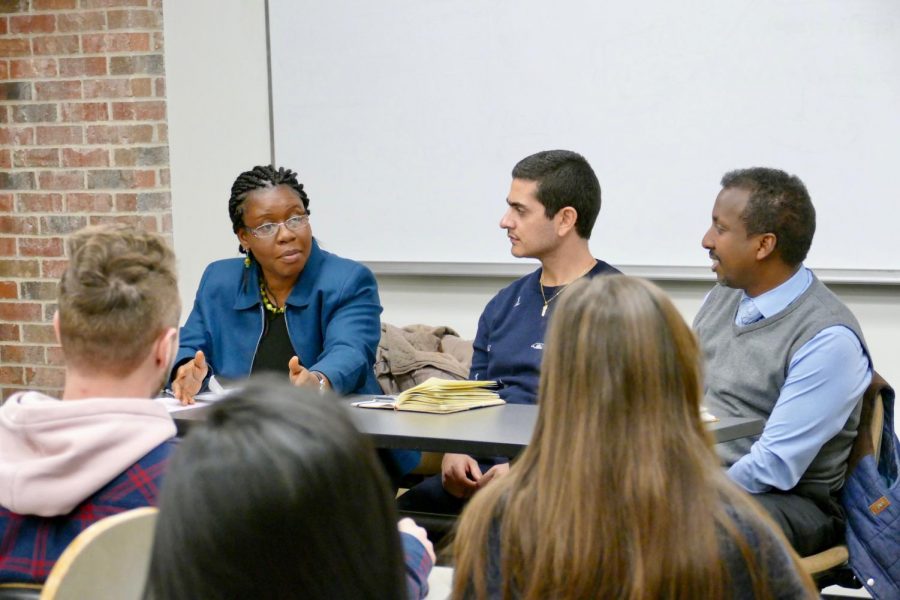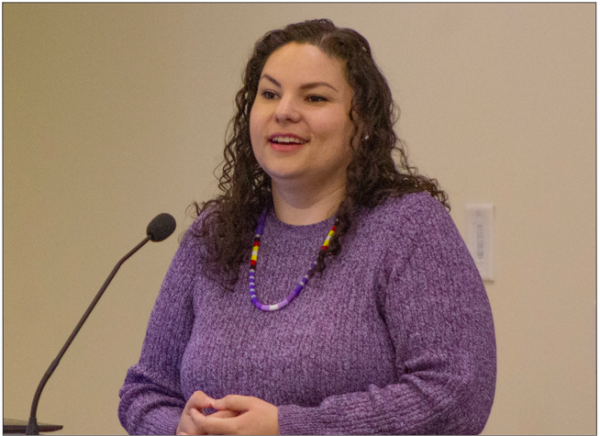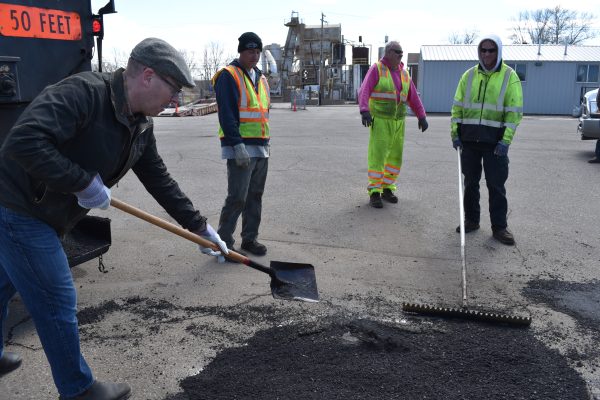Immigrants share their stories with Hamline students
Three speakers detail their journey to the U.S. at Communication Studies event.
Lili Agbokpe, a nurse at Ebenezer Care Center in Minneapolis, preaches for peace and understanding as she describes the citizenships process after her husband was granted political asylum in 2006.
November 6, 2019
Students gathered in a packed GLC classroom to listen to the stories and struggles of three immigrants to the United States during a panel discussion on Oct. 28.
The panel, titled “Global Peace for a Sustainable Global Community,” featured the voices of two Hamline faculty members, Nur Mood, the Coordinator of Social Justice Initiatives & Strategic Relations for the Middle East and North Africa Region (MENA); and Cultural Studies instructor Gaith Hijazin. Also featured was community member Lili Agbokpe, who immigrated to the United States from Togo and currently works as a nurse at Ebenezer Care Center in Minneapolis.
Agbokpe came to the United States in 2006 with her family after her husband was granted political asylum.
“You come here and become zero,” Agbokpe said when speaking on the frustrating process of becoming a citizen in the United States. It took 13 years for her to become a citizen and the process involved a great deal of uncertainty.
Frustration with the bureaucracy and endless obstacles involved in the path to citizenship was a consistent theme in each speaker’s story.
“I would just wake up and feel like there is no hope,” Hijazin said as he detailed how the slow-moving immigration process made him uncertain whether he would be able to stay in this country. Hijazin came to study in the United States from Jordan when he was sixteen years old.
Mood is originally from Somalia and moved to the United States in 2004. His journey to the United States was harrowing, as he and his family were forced to flee their country due to the Somali Civil War that began in 1991.
“The first beautiful thing I had ever seen in my life was Dubai International Airport,” Mood said as he explained his family’s escape from Somalia. “Imagine growing up just like destruction… gunfights, dead bodies in the streets, and then you end up in a beautiful airport.”
The panelists closed by emphasizing the importance of experiencing other cultures to become better global citizens.
“We need to come out of these experiences better, not bitter people. The world needs better people not bitter people,” Hijazin said.
This message seemed to resonate with the audience.
“I’ve been wanting to expand my cultural education for a while now,” junior Zach Dickmeyer said, an attendee at the event. “It seems a lot easier than it did an hour ago.”
Professor Suda Ishida, who organized the event, hoped the panel would shed light on the experiences of immigrants and inspire students to experience different cultures.
“I’m very happy that through the Mansergh-Stuessy grant, the Communication Studies Department has been able to organize opportunities for people to share their personal experiences related to immigration and refugee topics, and I hope to continue this in the future,” Ishida said.





